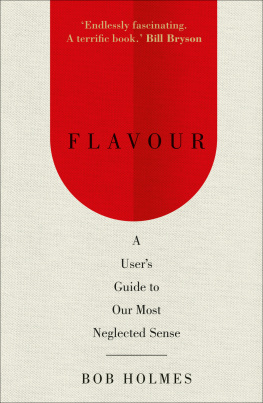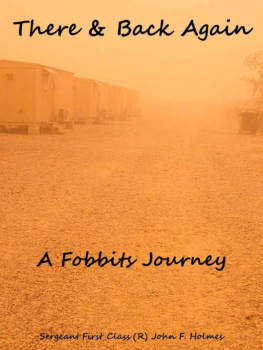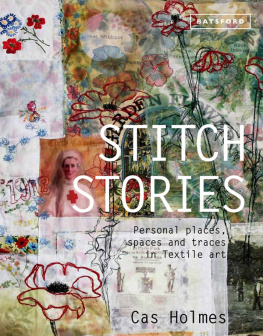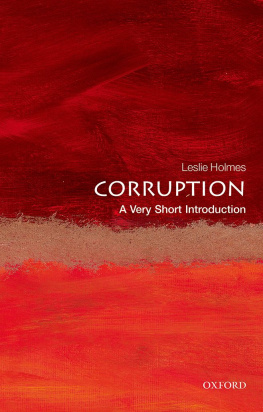About the Author
Bob Holmes has been a correspondent for New Scientist magazine for nearly two decades, and has written more than 800 articles for the magazine, mostly about genetics, environment, evolution, psychology, anthropology and agriculture. He has also contributed to many other publications, including US News & World Report, Science, Health, National Wildlife, Nature Conservancy magazine and the San Francisco Chronicle and made several radio and television appearances in Canada as well as in the US and the UK. As well as earning a PhD in evolutionary biology from the University of Arizona, he has taught for several years in the science writing programme at the University of California, Santa Cruz, and now teaches science journalism at Bamfield Marine Sciences Centre on Vancouver Island, Canada. A member of Slow Food Canada, he has worked with the taste education programme of his local chapter and is a passionate home cook. He lives with his wife and teenage son in Edmonton, Alberta, Canada. Flavour is his first book.
About the Book
Why should you serve red wine with classical music and white wine with pop music?
What is it about a heavier bowl that makes your pudding taste better?
And how can you make your food taste saltier without adding more salt?
New Scientist correspondent Bob Holmes has tasted a lot of things in the name of flavour. Hes travelled all over the world, delved into cutting-edge scientific research, enlisted chefs, psychologists, molecular gastronomists, flavourists and farmers, and even received very rare access to one of the worlds few highly secretive flavour houses.
A fascinating and surprising exploration into a world of high-definition flavour.
CONTENTS
For Deb, my partner in flavour and in life
INTRODUCTION
Have you ever wondered why beer and salted peanuts go so well together? Scientists know the answer: Salty tastes inhibit bitter ones, so the nuts tame the beers bite and allow some of its other flavours to step forward. Once you know this principle, you can apply it in many other ways. Serve the nuts (or pretzels) with gin and tonic. Add a little extra salt if tonights broccoli is especially bitter. Put a pinch of salt on your morning grapefruit.
The science of flavour is full of insights like that, but hardly anyone knows about them. Thats because flavour barely registers in the screenplay of our daily lives. We rarely examine the flavours we experience, and as a result we dont know how to talk about them or think about them. Heres a thought experiment to prove it: Take a moment and bring to mind one of your favorite pieces of music. Recall how its put together and what makes it special for you. Is it the subtle use of the saxophone in the bridge section? The way the first violin and cello trade the theme back and forth? The moment of breath-holding suspense just before the vocals start? Chances are, you can put your finger on several specific elements that make that music sing for you. You can name the instruments that are playing, you can pick out the melody, bass line, and vocals, you know how fast the beat is.
Now try to describe your favorite apple variety in the same detail. Why do you like, say, Fujis better than any other? Most likely, youll stammer out a few generalities about crispness or sweetness or more flavour. But unless youre a trained apple taster (and such people do exist), you probably wont be able to manage much more than that. You certainly wont be able to name the apples flavour elements as nimbly as you named the instruments in your favorite music, and you probably wont have much to say about how the flavour profile of each bite builds and ebbs.
And our imprecision is not confined to just apples. Can you describe how the flavour of halibut differs from red snapper? Or how Brie cheese differs from Cheddar? The fact is that for most of us, flavour remains a vague, undeveloped concept. We say dinner tasted good, or I like those peaches, but we never dip beneath the surface of those superficial responses. Its not that were blind to flavour. If you can recognize that a Fuji apple differs from a Spartan, or that Brie differs from Cheddarand almost all of us canyou have the basic perceptual tools to explore the world of flavour in greater depth.
What holds most of us back is that although we experience flavour every day, we just dont know much about it. We sip our morning coffee or enjoy our dinner while largely ignorant of the complex interplay of taste, smell, touch, sight, and even expectation that creates the sensation we know as flavour. Without that knowledge, we lack the means to describe what we experience, and as a result, far too often we simply dont notice the fine details of what we eat and drink. Its as though the entire world of flavour has been relegated to the backgroundelevator music for the palate, as it were.
Sometimes thats fine, of course. Sometimes all we really want is background music, or a quick bite to eat without bothering too much about the details. But in our musical world, most of us take that extra step now and then. We pay attention and dig a little deeper, and our lives are much richer for it. We can have the same rich experience in our flavour lives, toobut only if we learn more about the world of flavour: how we perceive flavour, where it comes from, and how we can maximize it, both on the farm and in our kitchens. Thats where this book can help.
Paying attention to flavour makes life not just richer but deeper, because flavour appreciation may be a uniquely human gift. The biology of our speciesthe fact that we live in social groups, inhabit essentially every environment on Earth, and eat a diverse, omnivorous dietmeans that our ancestors had to become very good at certain skills. They had to recognize faces to tell friend from foe, neighbor from relative, and honest dealer from cheater. As a result, all of us, with a few rare, pathological exceptions, are indeed skilled at picking out the subtle differences that distinguish one face from the next. We recognize, and often remember, the face of someone we went to school with years ago, and the stranger we met casually at a party yesterday. And we do it instantaneously, at a glance, not by laboriously piecing together evidence from nose, ears, cheekbones, and eyes. This recognition skill is special and unique to faces. Its not just a consequence of sharp perception and attention to detailwe have nowhere near the same ability to recognize people by their hands, for example.
Flavour recognition is another of humans special skills. As omnivores, our ancestors had to judge what they could eat and what they couldnt, and flavour is how they made that decision. Those skills are now part of our evolutionary heritage. All humans are flavour experts in the same sense that were face experts, says Paul Breslin, a leading psychologist who studies flavour perception. It is literally a life-or-death matter. If you eat the wrong things, youre dead. We recognize the flavour of a strawberry or a pineapple or a green bean in a flash, even if we cant put a name to it without prompting.
In fact, our flavour sense may have played a large role in making humans into the species we are. Anthropologist Richard Wrangham argues that we could never have evolved our huge, expensive brains without the easy calories made available by cooking. Raw foods simply dont yield enough calories to get our modern, big-brained bodies through the day. Our cousins the chimps spend hours each day laboriously chewing their raw foods to extract the caloriestime and energy that humans can put to better use. And people who follow a raw-food diet typically lose significant weight, even with blenders and juicers to take the place of constant chewing. Cooking breaks down indigestible tissues into smaller, more digestible fragments, and thus helps us get more from our meals for less effort. And in the process, it creates a whole host of delicious new flavours.














